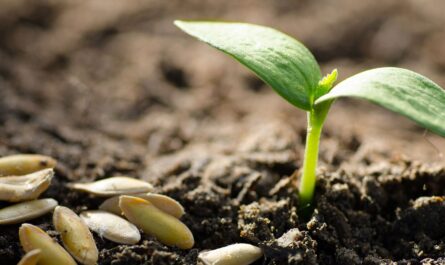Organic Farming: A sustainable way of farming
Organic farming is an ecological production management system that promotes and enhances biodiversity, biological cycles and soil biological activity. It is based on minimally processed, naturally occurring farming inputs such as compost, crop rotations and approved materials like minerals. Organic farming practices avoid synthetic pesticides and fertilizers while promoting environmentally, economically and socially sustainable agriculture.
History and rise of organic farming
The concept of organic farming can be traced back to the early 1900s, with Indian philosopher and farmer J.I. Rodale and British nutritionist Sir Albert Howard being seen as pioneering promoters of organic agriculture. However, it was not until the 1960s and 1970s that organic farming became a global phenomenon, driven by an increasing negative public perception of chemical agriculture and a growing awareness of environmental issues. In the 1980s and 1990s, concerns over food safety, sustainability and animal welfare led to a meteoric rise in organic produce sales worldwide. Today, organic farming is practiced commercially in over 180 countries with Australia, Argentina and India emerging as major producers. According to market research firms, the global organic food and beverages market is expected to top $277 billion by 2025.
Principles and practices of organic farming
organic farming promotes ecological balance and aims to conserve biodiversity. It relies heavily on crop rotation, compost manure and biological pest control to maintain soil productivity and plant health without using synthetic fertilizers and pesticides.
– Crop rotation – Rotating dissimilar crop species in the same space over time helps control pests and diseases naturally while improving soil nutrients.
– Use of composts and manures – Organic matter from composted plant and animal residues are used to condition soil and supply plant nutrients.
– Biological pest control – Natural predators, parasites and pathogens are relied upon to control pests biologically. Methods include introduction of beneficial insects, pheromone traps and use of plant extracts.
– Preventive farm management – Practices like selection of disease-resistant plant varieties and maintenance of optimal soil and plant health help prevent pest and disease outbreaks.
Benefits of organic farming
Environmental benefits: Organic agriculture promotes biodiversity and protects natural resources. It improves soil structure and fertility, conserves water and reduces pollution from synthetic inputs. Transitioning to organic has potential to mitigate and adapt to climate change.
Economic benefits: While initial investment may be higher, lower input costs on organic farms translate to higher net returns over time. Premium prices for organic produce also provide economic incentives. Job opportunities are generated in processing, marketing and export of organic farm products.
Health benefits: Organic foods are free of synthetic pesticide residues and have higher nutritional value. Many studies have linked consumption of organic diets to positive health outcomes like reduced risk of various cancers. Transition to organic helps wean dependence on imports and promotes local, self-reliant food systems.
Challenges in organic farming
Higher labor costs – Organic farming is more labor-intensive compared to conventional methods due to practices like weeding and use of plant-based remedies for pest control.
Pest and disease management issues – Reliance on biological and preventive methods for pest and disease control makes organic farming more vulnerable to outbreaks than chemical-intensive farms.
Input supply constraints – Shortage of quality manure and organic fertilizers remains a challenge especially for large-scale organic producers.
Lack of infrastructure – Underdeveloped supply chains, storage facilities, processing units and exports markets limit remunerative and large-scale adoption of organic farming in many regions.
Weed problems – Effective weed management without herbicides requires skill and additional labor costs. Perennial and invasive weeds can be hard to control organically.
Yield gaps – Yields under organic management have sometimes been found lower than conventional yields, though yield differentials are reducing with advancements in organic techniques.
Way forward
To reap the benefits of organic farming while overcoming challenges, a multidisciplinary, systemic approach is needed. Governments must invest in organic input and infrastructure development, subsidize conversion costs, facilitate collective marketing and undertake rigorous research and extension. At the same time, private sector can play a major role through contract farming, value addition, and development of organic brands andexport markets. With supportive policies and programs, organic farming holds immense promise for sustainable agriculture and rural livelihoods worldwide. Its environmental and health benefits also make widespread adoption of organic an urgent international priority.
Organic farming offers a low external input, sustainable alternative to conventional intensive agriculture which depends heavily on fossil-fuel based chemical inputs. By respecting natural cycles and ecological balances, organic helps conserve scarce resources like land, water and biodiversity for our future generations. While challenges persist, with collective action and incentives, organic farming can play a pivotal role in building resilient, equitable and eco-friendly local food systems worldwide in the coming years. Its multiple advantages also make widespread transition to organic an environmental and public health necessity.
Note:
1. Source: Coherent Market Insights, Public sources, Desk research
2. We have leveraged AI tools to mine information and compile it




